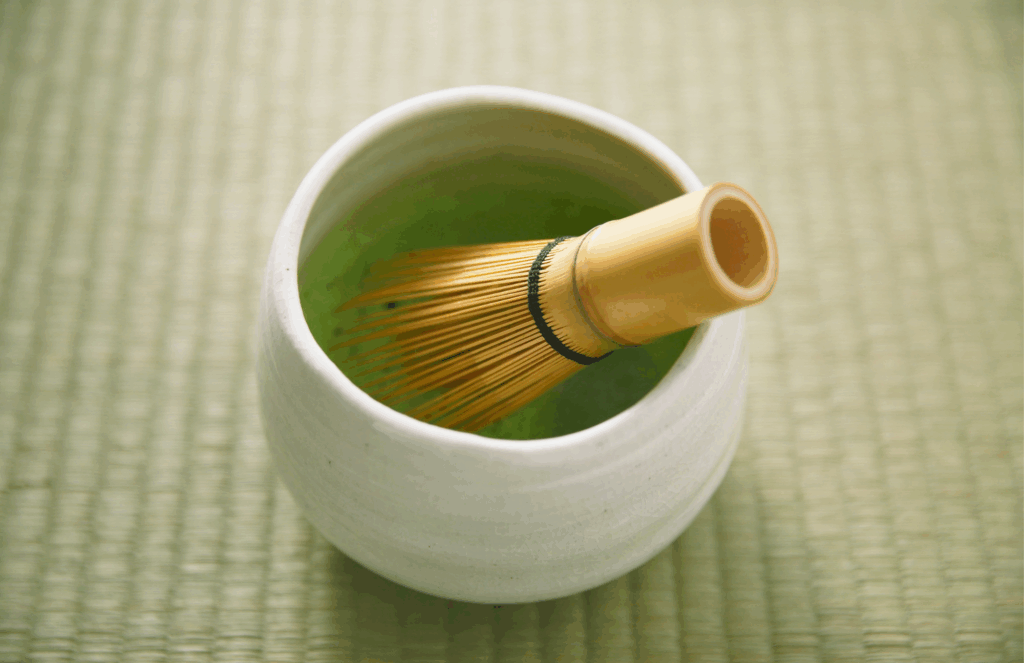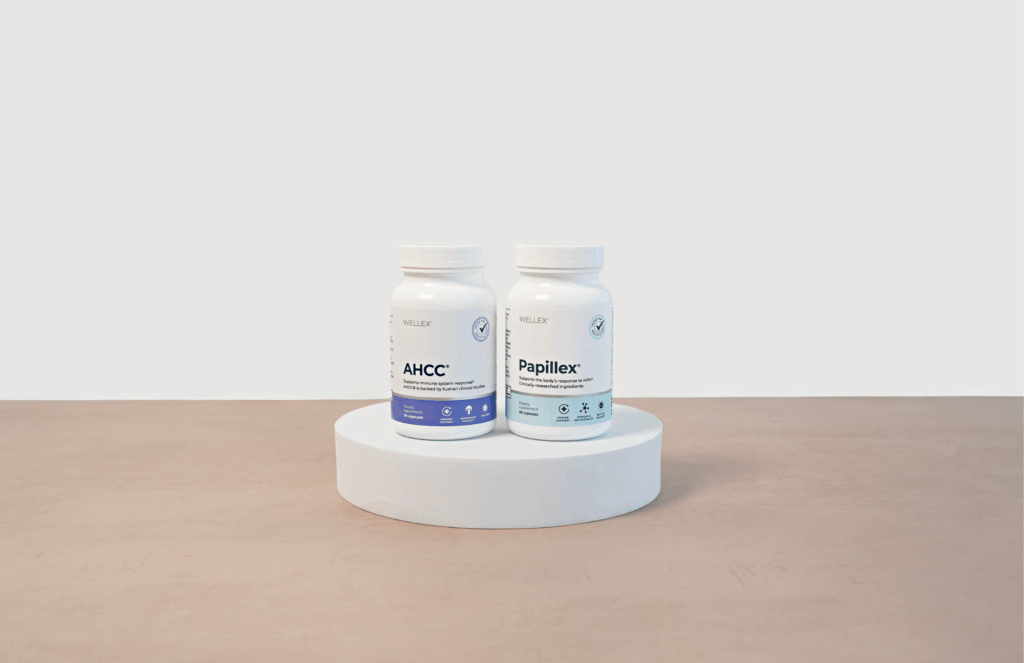HPV Immune System: Why Immunity Matters More Than You Think After a Diagnosis
Table of Contents
It’s not just about avoiding colds. Your immune system plays a lead role in helping your body clear HPV, and if it’s weighed down by inflammation, it might not be performing at its best.
How Does Your Immune System Help Fight HPV?
HPV is a common viral infection, and your immune system is your first line of defense. When HPV enters the picture, it’s your immune system – specifically your T-cells – that recognizes and targets infected cells. These vigilant defenders work quietly behind the scenes, mounting a response that can fight the virus.
But here’s the catch: chronic inflammation – often hidden in plain sight – can dull this immune response. It lulls your T-cells into low gear and keeps your body in a reactive, defensive state, which leaves less bandwidth to focus on fighting HPV.
Most people with HPV don’t notice anything unusual. They may not feel “sick” or run down, but at a cellular level, persistent HPV infections can keep the body in constant defense mode. That means your immune system is working overtime on background fires instead of directing its full strength toward combating HPV.
T-Cells, NK Cells, and the HPV Immune Response
Your immune system is made up of many moving parts, but two types of cells are particularly important for HPV:
- T-cells are adaptive immune cells that recognize and destroy HPV-infected cells. Chronic inflammation, often fueled by lifestyle risk factors like poor diet, smoking, unmanaged stress, and environmental toxins, can impair T-cell activation and reduce immune activity.
- Natural Killer (NK) cells are part of your innate immunity. They act quickly, scanning your body for cells that don’t look right – including virus-infected cells. Research shows that boosting NK cell activity is linked to faster combatting of HPV and better long-term outcomes
- When inflammation becomes chronic, it “distracts” both T-cells and NK cells. Instead of focusing on viral defense, the immune system is caught in a cycle of constant background repair.
The result? A slower, less effective response to HPV.
What Can You Do to Support Immunity Naturally?
The good news: your immune system is highly adaptable. Even small, consistent changes can help bring inflammation down and restore balance.

- Eat anti-inflammatory foods: Prioritize colorful fruits and vegetables, leafy greens, cruciferous veggies (like broccoli and kale), and whole plant foods rich in antioxidants.
- Manage stress: Practices like mindfulness, yoga, or even a daily walk can lower stress hormones that otherwise keep the immune system in overdrive.
- Prioritize quality sleep: Sleep isn’t just rest – it’s when your immune system resets. Aim for 7-9 hours of restful sleep each night.
- Move your body: Regular, moderate movement improves circulation, supports immune balance, and helps reduce inflammation. You don’t need intense workouts – consistency matters more.
- Break Bad Habits – Beyond dietary considerations, not smoking, abstaining from recreational drugs and alcohol, and avoiding egregious amounts of stress will help alleviate excess load on your immune system. Smokers exhibit a 200-300% higher incidence of cervical dysplasia.
- Drink Green Tea – There is a growing body of evidence that suggests the flavonoid ECGC found in green tea may inhibit the development of HPV warts and cervical lesions.
Supporting your immune system doesn’t just help manage HPV – it can also play a role in helping the body prevent HPV from progressing into long-term issues.
Can Supplements Like Papillex® and AHCC® Help?
For patients with HPV, reducing smoking and stress can significantly support immune health. Lifestyle changes create the foundation for immune strength. But sometimes your body needs additional, targeted support. That’s where supplements like Papillex® and AHCC® come in.

What is Papillex®?
Papillex® is a doctor-formulated, plant-based supplement designed specifically to support people managing HPV. It combines a unique blend of nutrients and plant compounds that:
- Promote cervical cellular health (broccoli sprout extract with indole-3-carbinol, DIM, and sulforaphane)
- Support immune resilience (reishi mushroom, astragalus, zinc, selenium, folate, vitamins C & E)
- Provide antioxidant protection (green tea extract, carotenoids, lycopene)
Papillex® helps replenish key nutrients that research shows may be low in patients with HPV, creating a supportive environment for your immune system to do its work.
What is AHCC® (Active Hexose Correlated Compound)?
AHCC® is a clinically studied supplement derived from shiitake mushrooms. It works differently than Papillex® – instead of replenishing nutrients, it modulates immune cell activity:
- Enhances NK cell activity
- Improves T-cell cytokine production
- Supports immune memory and long-term defense
Clinical research has shown AHCC® may help support HPV clearance when taken consistently. It’s widely used in immune health, from viral support to recovery and resilience.
Why Use Them Together?
Papillex® and AHCC® complement each other beautifully: one helps refill the immune system’s toolbox, while the other sharpens the tools themselves. Together, they create a more comprehensive immune-support approach.
What’s a Simple Roadmap for Supporting Immunity After HPV?
If you’ve recently been diagnosed with HPV, supporting your immunity can feel overwhelming. Breaking it down into steps can help.
- Weeks 1–4
- Focus on anti-inflammatory basics: whole foods, stress management, better sleep.
- Begin small habits like adding a serving of cruciferous veggies daily.
- Focus on anti-inflammatory basics: whole foods, stress management, better sleep.
- Weeks 3–6
- Add Papillex® consistently. Notice subtle changes like energy, digestion, or overall vitality.
- Add Papillex® consistently. Notice subtle changes like energy, digestion, or overall vitality.
- Weeks 5–8(Optional, consult your healthcare provider)
- Consider adding AHCC® for enhanced immune support.
- Consider adding AHCC® for enhanced immune support.
- Weeks 9–12
- Reassess: Are you feeling more resilient? Have lifestyle changes become second nature? Continue with Papillex® for maintenance and AHCC® as recommended.
- Reassess: Are you feeling more resilient? Have lifestyle changes become second nature? Continue with Papillex® for maintenance and AHCC® as recommended.
Small steps add up. Over three months, you’ll have layered lifestyle changes with targeted support – giving your immune system the best environment to respond to HPV.
The Bottom Line?
An HPV diagnosis can feel out of your hands – but your immunity doesn’t have to. Your body’s resilience lies in how you support it.
The immune system isn’t just for colds and flu – it’s your frontline in combating HPV. By lowering inflammation, nurturing your lifestyle, and choosing evidence-backed support like Papillex® and AHCC® supplements, you’re giving your body the best chance to thrive.
References
- Smith J, et al. Active Hexose Correlated Compound (AHCC) and persistent HPV infections: Clinical outcomes. Frontiers in Oncology. 2019. Read here
- Ostrander EA, et al. AHCC® supplementation improves immune function in women with HPV. J Gynecologic Oncology. 2022. Read here
- Clarke JD, Dashwood RH, Ho E. Multi-targeted prevention of cancer by sulforaphane. Cancer Letters. 2008. Read here
- Rezoagli E, et al. Reishi mushroom (Ganoderma lucidum) and immune regulation: From traditional use to clinical applications. Nutrients. 2020. Read here
- zur Hausen H. Papillomaviruses and cancer: From basic studies to clinical application. Nature Reviews Cancer. 2002. Read here
- CDC. Human Papillomavirus (HPV) and Cancer. Centers for Disease Control and Prevention. Read here
Share: